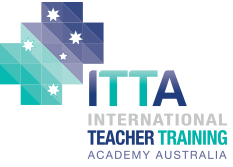
Workplace-based learning
Learning at work is about embedding learning into daily work processes. Rich learning opportunities occur regularly on-the-job through work assignments and feedback from supervisors, coaches, mentors or peers; but the learning component is often inconsistent and inadequately planned.
The workforce of an organisation is likely to be its major operational cost. It is also the major contributing factor to the success of the organisation. The demands of globalisation and technology require an organisation to move forwards in order to stand still. This requires the organisation to develop and maintain a culture of learning at all levels.
Workplace learning will have three main aims:
- To prepare employees to develop specific skills necessary to perform effectively in their current job role (performance improvement).
- To build skills and knowledge that will make employees more effective in a variety of possible job roles (performance development)
- To prepare employees to take on broader or more demanding job roles in the future (career progression and change management)
We would like to hear about your experience with “Learning in the Workplace”.
If you have undertaken formal learning (external to the workplace) did this learning provide you with the skills and knowledge to perform your work tasks effectively? If you have been provided with learning in the workplace, describe what worked well or what could have been improved.



13 comments
Colleen Crowe
I have undertaken years of formal education in my areas of work. The evidence based fundamentals were the knowledge base of my learning. However, I must say that where I learned the majority of my day to day knowledge and skills, were on the job. Theory is great and is the priority structure of any learning, however, I always go by the saying of “see one, do one, teach one” and it has always assisted me in learning and guiding others in the practical tasks in my role, along with regular training, in-services, audits and assessments of patients in my care.
Rebecca Kate
Workplace learning is such a valuable way for people to build skills while doing the job. It helps learners make sense of what they’ve learned by applying it straight away, which often builds confidence and understanding much faster. Learning in a real workplace also allows for regular feedback and reflection, making the experience more meaningful for both the learner and the organisation.
Daisy Alexander
I have found that workplace learning needs to be very hands-on for the learner, and that the knowledge evidence should be as transparent as possible so that the learner can identify where they are now, where they need to be, and how this training will get them there.
Shadey Halawe
What I like about workplace-based learning is that it’s a training approach that embeds skill development within authentic work environments, allowing learners to apply theory in real-world contexts. This method aligns with the VET principles of industry relevance and flexibility, as it ensures training reflects current workplace practices while accommodating organisational needs.
For example, a community services trainee completing CHCCSL001 and CHCCSL003 in a counselling agency can observe intake sessions, practice communication techniques under supervision, and develop referral pathways using actual service networks. Such experiences reinforce competency-based training by enabling learners to demonstrate skills in conditions that mirror those outlined in nationally recognised units of competency.
The advantages of workplace-based learning include immediate relevance, stronger engagement, and enhanced employability outcomes through contextualised practice. It also supports the VET principle of validity in assessment, as performance is observed in authentic settings.
However, I also think that challenges exist: workplace variability can compromise consistency, and operational pressures may limit structured learning time. For instance, a learner in a busy counselling centre may struggle to complete reflective tasks if client demand is high. Additionally, maintaining fairness and sufficiency in evidence collection can be difficult without robust planning. To mitigate these risks, RTOs and employers must collaborate to ensure structured supervision, clear assessment strategies, and compliance with the Standards for RTOs 2015.
Merissa
I have completed almost a decade of formal education across two different universities and while the learning was worthwhile for knowledge base and fundamental understanding, the knowledge I really use day to day that relates to my work was practically taught on the job. Regular Inservice’s around topics that relate to my patient care and product use are the learning that makes a difference in my field, practice and steady learning should count for more towards qualifications.
Sarah Moore
I find that workplace-based learning is instrumental to the success of the knowledge being delivered. Specifically to myself as a fire fighter as it bridges the gap between theoretical training and real-world application in high-pressure, unpredictable environments. Fire fighters face situations that demand split-second decision-making, physical endurance, and seamless teamwork, all of which are best developed through hands-on experience on the job. By learning directly in the field, new recruits and experienced personnel alike can refine their technical skills—such as hose handling, search and rescue techniques, and equipment operation—while also building situational awareness and resilience under stress. This immersive approach ensures that knowledge is not just understood but ingrained through repeated practice in realistic scenarios, ultimately enhancing safety, efficiency, and effectiveness in life-threatening situations.
Sonn
I see formal training as informative and sort of the bones of what you need to build on through workplace training.
Maria
Workplace learning needs to be backed up with the knowledge evidence first. It is through using the knowledge evidence and colleagues support in the workplace that we improve our work skills and grow professionally. Each modality of learning is needed in order for a learner to succeed.
For workplace learning to be a valuable experience for the learner all workers must follow the organisations policies and procedures to maintain consistency in the workplace
Tristan
I have both undertaken and delivered many training programs throughout my career. I have found that more value in the internal trainings that have focussed on workplace capabilities that enable staff to perform well in their roles, compared to external trainings that have vaguely focussed on qualities like ‘leadership’.
Beau Maddern
Having been fortunate enough to have undertaken formal learning in the workplace as well as externally I have found them both to be positive although my experience of how they benefit has differed greatly. Regarding learning within the workplace the focus is often much more specific to that particular business or establishment with the positive outcomes more often than not applicable to that environment only and do not often seem transferable to outside equivalent workplaces, even in the same industry. An example may be of learning to operate a software system developed specifically for that business; on one hand some computer literacy may be developed but the learner is unlikely to be tasked with using those programs in another workplace and the adult learner may not be motivated, especially if they are considering moving to a new position outside. With formal learning the outcomes can be more broadly applied to the workplace as a whole ( unless specifically designed for one area ) and as such it can prepare the learner for improved options ( such as learning a software program that is industry standard ). They often compliment each other well in that external formal learning can provide a learner with a foot in the door opportunity and more specific workplace training can help develop a worker in their more defined role. To improve this hand in hand effect both methods could borrow off each other to help learners get a little more specific when involved in broader external learning while the workplace training ( while maybe not as beneficial for the provider ) could allow a bigger scope of learning to allow those receiving it to apply it on wider scale.
Katrina Tsaftaropoulos
I spent a total of 6 years at University completing a Bachelor and Master Degree – neither of which offered workplace learning. Whilst there was an enormous amount of knowledge that was covered, I find that in most of my roles, it is learning workplace practices and policies which govern the way I work, rather than the information that was gained while at University.
Throughout my time in the Community Services sector, having worked in various roles, I have been provided with “training on the job” to either upskill or to assist in applying particular knowledge to the role.
Any formal external training must be completed in our own time.
Personally I believe that it is experience I have gained in each role that has allowed me to progress in my career. I definitely see the value of “doing” something or having exposure to a real workplace, alongside the theoretical knowledge required in the Community Services Sector.
Sabrina L Palmer
I have attended learning external to work such as conferences etc. They are a great source of information however, not usually a hands on space, and usually very expensive.
When hospital working, small regular refresher sessions on subjects/policies/procedures etc were great to keep up to date.
Sarah Ison
I have undertaken lots of different learning experiences throughout my career.
Most of my experience has been in an “as you go” style while participating in lots of workshops, product educator training and competition training. The majority of my qualifications have been gained via formal learning, later in my career to venture into becoming a VET trainer. I feel that by the time I have completed my studies I will be well enough informed to be able to carry out my work tasks.